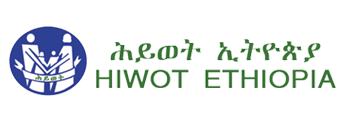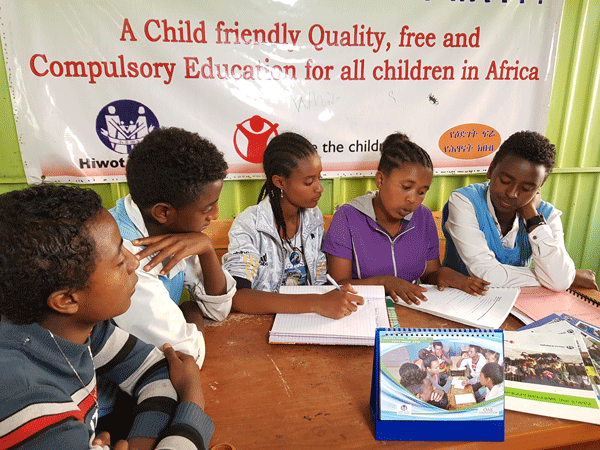Empowering children to ensure their meaningful participation
Empowering children to ensure their meaningful participation and demonstrating to their right, is currently implementing project by the support of Save the Children Since 2010. Hiwot Ethiopia, based on its past experiences of working on child right governance and child protection, has designed an intervention which aims to empower children and enhance their capacity to meaningfully participate in local level governance structures and demonstrate their rights.
This project has aimed to enhance child participation in local level governance, budget processes and budget analysis/tracking. It focuses on supporting child led initiatives to become model child clubs that prioritize and promote children’s issues. The project builds the capacity of children, CRCs and community representatives (council members) to lobby at the community and local government level for improved participation in budgeting for child health, education and social protection. They also lobby members of child right committees, NGOs and other community based institutions to promote and ensure children participation and access to essential services for vulnerable children.
The project mainly focuses on awareness raising, capacity building and advocacy campaigns to create conducive and protective environment to children in Addis Ababa.
Major achievements:
• The project has contributed to the empowerment of children and facilitated their meaningful participation in local level governance, including budgetary processes. Therefore, as the result of the supports provided by the project, children have been able to actively participate at woreda level budget planning sessions, advocacy and community support programs. For instance, in the year 2016, fifteen children participated in annual budget planning and approval sessions organized by the respective woreda’s Finance and Economy Offices. As a result of the intervention, many children, especially those who have been active members of child led initiatives, enhanced their communication, leadership and advocacy skills, life skills, drawing and art skills, financial management skills, skills necessary to participate in government budgetary process, and academic performance skills.
• Children’s participation has been mainstreamed and practiced by woreda/district government offices along with budget allocation to vulnerable children. Children have participated in different platforms, discussed with woreda/district level government administrators and influenced the decision of their respective local governments. Children voiced their own opinions and interests to be included in the budget and project plan of their respective woreda administration and the project.
• The work of the CLIs has created opportunities for children to speak out about their views and concerns in the presence of decision makers. As a result, the target local governments have started to plan activities with the allocated budget for children in their annual plan. The efforts of CRCs (child support groups), council members, CLIs and woreda and sub city level decision makers have gone beyond budget allocation and they shared and scaled up their success to other woredas/districts.
• Woreda/district level council members had a significant role in their district budget cycle. Their involvement focused on advocating child budgeting to influence decision makers through organizing interface meetings, awareness raising platforms, and directly engaging in the budget planning and approval process.

